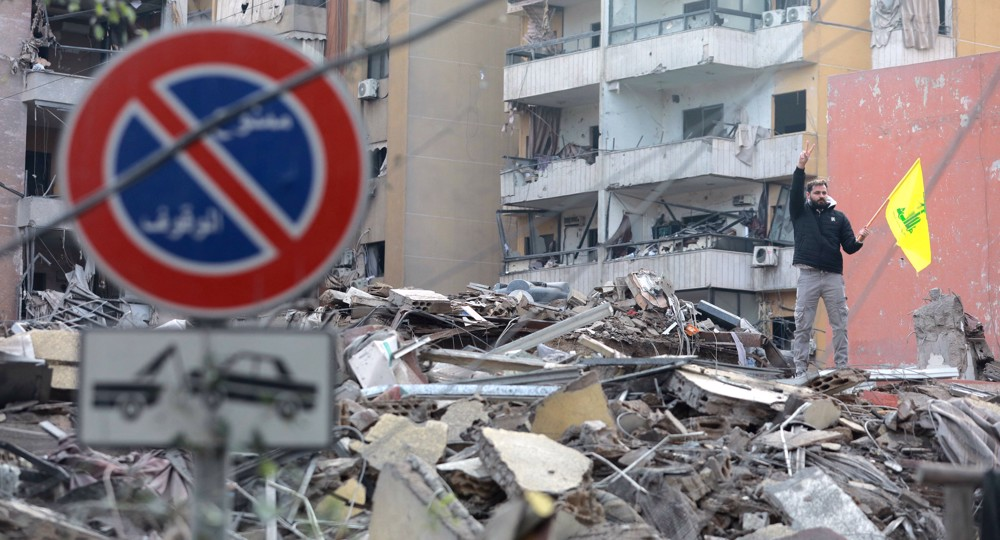
A man waves the flag of Hezbollah as he stands on the debris of a building in Beirut’s southern suburbs on November 27, 2024, as people returned to the area to check their homes after a ceasefire between Israel and Hezbollah took effect. (By AFP)
Oslo, November 29 (RHC)-- The Norwegian Refugee Council (NRC), an international humanitarian organization, has warned that the humanitarian crisis in Lebanon would continue despite a ceasefire deal with Israel, stressing that the truce should ensure the end of displacement in the Arab country.
Jan Egeland, NRC’s Secretary General, made the remarks in a statement earlier this week, as thousands of Lebanese, who had been displaced from the country’s southern areas due to intense deadly Israeli attacks, are returning home after the ceasefire deal between Israel and Lebanon came into effect earlier in the day.
“After a violent night in which Israel’s aerial bombardment of Beirut spread yet more chaos and destruction, we now have a long-overdue ceasefire,” Egeland said, adding, “It will be a moment of relief for the families I met recently in Lebanon – and for millions around the country – but this relief must be lasting.”
He went on to say that many Lebanese people will have nowhere to return to, emphasizing, “The wellbeing of children and their families must be prioritized in what will be a long journey to recovery.” Egeland further noted that the NRC will continue to work in the country as the humanitarian situation persists.
“It is now also far beyond time for the fighting in Gaza to cease too. The ceasefire in Lebanon must not lead to any further escalation there or elsewhere,” he added.
Israel was forced to accept a ceasefire with the Lebanese movement Hezbollah after suffering heavy losses in recent months and failing to achieve its goals in its aggression on Lebanon. The truce agreement officially came into effect at 04:00 local time (0200 GMT) on Wednesday.
The Israeli regime began taking Lebanon under intensified deadly aggression last October after launching a genocidal war on the Gaza Strip. The aggression has claimed the lives of at least 3,768 people, including 42 who perished across the country on Tuesday, besides wounding 15,699 others.
Hezbollah responded to the aggression with hundreds of successful retaliatory strikes against various sensitive and strategic military targets across the occupied territories, while fending off Israeli forces’ attempts to advance on southern Lebanese areas.
The movement recently announced killing more than 100 Israeli troops and injuring upwards of a thousand others during the strikes. Observers consider the triumphant strikes to be the main reason behind Tel Aviv’s approval of the deal.

